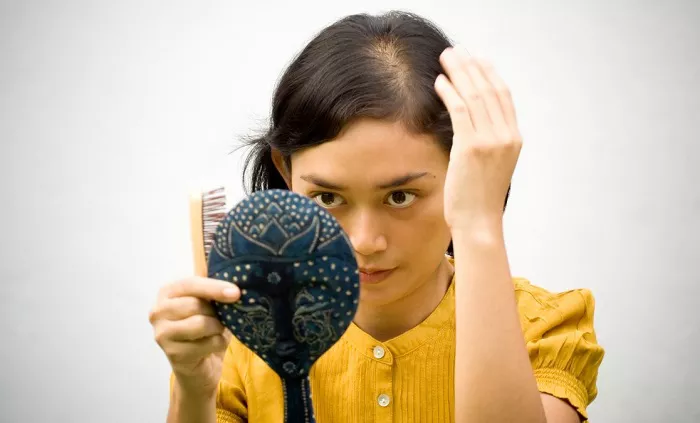Hair loss is a common problem that affects millions of people around the world. While genetics and aging are the most common causes of hair loss, stress can also play a role. Many people wonder whether hair loss from stress is permanent. In this article, we will explore this question in detail.
Understanding Hair Growth Cycle
The hair growth cycle is a complex process that involves the growth and shedding of hair follicles. The cycle consists of three phases: the anagen phase, the catagen phase, and the telogen phase.
The Anagen Phase
The anagen phase is the active growth phase of the hair follicle. During this phase, the hair grows from the root and pushes up through the skin. The anagen phase can last for several years, depending on the individual’s genetics and other factors.
The Catagen Phase
The catagen phase is a transitional phase that lasts for a few weeks. During this phase, the hair follicle shrinks and detaches from the blood supply. The hair stops growing and is no longer anchored to the scalp.
The Telogen Phase
The telogen phase is the resting phase of the hair growth cycle. During this phase, the hair follicle remains dormant for several months. The hair is still attached to the scalp but is not actively growing. After the telogen phase, the hair follicle re-enters the anagen phase, and a new hair begins to grow.
The hair growth cycle is a continuous process, with new hair follicles entering the anagen phase while others are shedding in the telogen phase. On average, individuals lose about 50-100 hairs per day, which is a normal part of the hair growth cycle.
Factors Affecting Hair Growth Cycle
The hair growth cycle is a complex process that is influenced by a variety of factors. These factors can affect the length of the anagen phase, the rate of hair growth, and the overall health of the hair.
Genetics
Genetics play a significant role in determining the length of the anagen phase and the rate of hair growth. Some people are genetically predisposed to have longer anagen phases and faster hair growth, while others may have shorter anagen phases and slower hair growth. Hair texture and thickness are also determined by genetics.
Age
As we age, the anagen phase becomes shorter, and the rate of hair growth slows down. This is why older people may experience thinning hair or hair loss. Additionally, the hair may become more brittle and prone to breakage as we age.
Hormones
Hormonal changes can affect the hair growth cycle. For example, during pregnancy, the anagen phase may be longer, resulting in thicker hair. After pregnancy, the anagen phase may be shorter, resulting in hair loss. Hormonal imbalances can also lead to hair loss, such as in the case of androgenetic alopecia (male or female pattern baldness).
Nutrition
A balanced diet that is rich in vitamins and minerals is essential for healthy hair growth. Nutrients such as iron, zinc, and biotin are important for hair health. A lack of these nutrients can lead to hair loss or thinning hair.
Treatment for Hair Loss from Stress
If you are experiencing hair loss from stress, there are several treatment options available. The first step is to identify the underlying cause of the hair loss. This may involve a physical examination, blood tests, and a review of your medical history.
Once the underlying cause of the hair loss has been identified, treatment may involve a combination of medications, lifestyle changes, and hair care practices. For example, if the hair loss is due to nutritional deficiencies, a diet rich in vitamins and minerals may be recommended. If the hair loss is due to stress, stress management techniques such as meditation and yoga may be recommended.
In some cases, hair loss may be treated with medications such as minoxidil or finasteride. These medications work by promoting hair growth and preventing further hair loss.
Conclusion
In conclusion, hair loss from stress is a common problem that can occur due to a variety of factors. While some forms of hair loss from stress may be temporary and reversible, others may be more serious and lead to permanent hair loss if left untreated. If you are experiencing hair loss from stress, it’s important to seek treatment as soon as possible to prevent further hair loss and promote hair growth. By identifying the underlying cause of the hair loss and implementing an appropriate treatment plan, individuals can regain their confidence and enjoy healthy, beautiful hair.
Related Topics:

